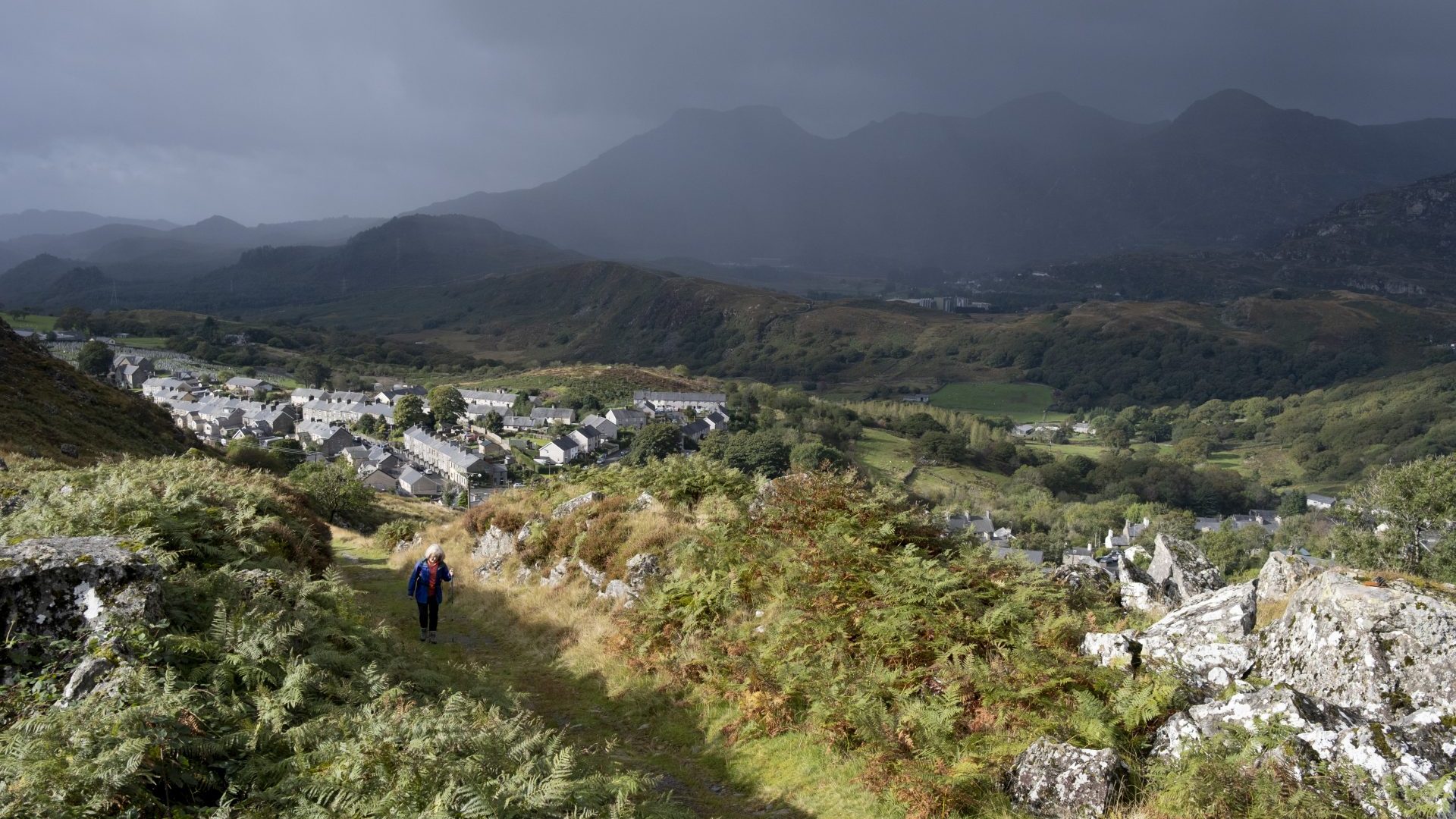Stand atop a crag, fell or pike in England or Wales today, and a vista of wide meadows, majestic ancient woodlands, and meandering rivers will unfold before you – a world to explore, or so it seems. Unbeknown to many, our green and pleasant land, long an inspiration for writers of poem and adventure, is in fact crisscrossed by invisible lines of legal ownership, barring you from entering all but a tiny proportion of it. Far from the collective inheritance of the nation, the British countryside is instead neatly carved up by a wealthy few – and they want to keep you out.
Under the current Countryside and Rights of Way Act (2000), the public have free access to only 8% of the total land across England and Wales. Yet to the dismay of campaigners across the nation, last month the Labour party u-turned on their commitment to grant full communal access to the countryside – or, the “Right to Roam”.
The Right to Roam would open up all uncultivated land – our hills, rivers and woodlands – for hiking, cycling, and overall public enjoyment, and it was implemented in Scotland in 2005. Yet even without the successful example of our neighbours north of the border, England and Wales stand out for their particularly prohibitive trespassing laws when compared to many European countries, where the Right to Roam has existed since time immemorial.
Labour’s policy volte-face appears to be a result of unsurprising landholder resistance, but many landholders who oppose Right to Roam are not everyday property owners, looking to protect their back gardens from unexpected tourists arriving with a picnic blanket (private gardens are exempt from Right to Roam). Largely, it is aristocratic families – and increasingly oligarchs and financiers – who work the hardest to keep the vast swathes of the countryside in their possession completely off limits to the public.
In fact, research by environmental campaign Guy Shrubsole has revealed that half of England and Wales is owned by a mere 1% of the population – a map of ownership that in places has changed very little in the last thousand years. The last Duke of Westminster went as far as to admit aloud that his advice to anyone seeking to acquire vast estates would be to “make sure they have an ancestor who was a very close friend of William the Conqueror.”
While the exact details of much land ownership is shrouded in secrecy, some proprietors are less subtle. In one particularly conspicuous example, the 7,000-acre South Dorset estate of Richard Grosvenor Plunkett-Ernle-Erle-Drax, a man with almost as many acres in his possession as he has surnames, is intimidatingly surrounded by the longest wall in England, reputedly comprising two million bricks.
Yet it doesn’t have to be this way. In contrast to our uncompromising view of private property, many of our neighbours on the continent treat public access to the natural world as a fundamental right, with a total of 12 European countries allowing full freedom to roam across any uncultivated land.
There are some regional variations in implementation: in Norway, public access to all open countryside stems from ancient custom but was codified into national law in the 1950s; in Finland, there is no official codification but right to roam exists as an embedded cultural norm, enabled by a lack of any express law of trespass to undermine it. Most impressively, in Sweden the right to roam is actually guaranteed under the country’s constitution and the Swedes are so proud of it that a recent marketing campaign saw their tourism board list the entire country on Airbnb, rather poetically (if cheesily) declaring that “every lake is your infinity pool, every mountaintop your granite terrace, every meadow becomes a garden and every forest a pantry”.
Even without the unlimited access rights of the Baltics and some of Scandinavia, a liberal approach to the accessibility of nature is widespread on the continent. Forests are a particularly notable example, with 40% of forest areas in the EU owned publicly, compared to only 16% in England.
Although not all publicly owned European forest land is open access, this demonstrates a markedly different approach to a collective natural heritage that the UK could benefit from imitating. Even where private ownership exists, several countries – including Austria and Switzerland – allow hikers free access to all forests and mountainous areas; it’s hard to imagine the toleration of a Drax-style wall around the Alps. By contrast, in England and Wales the majority of land in our national parks is actually out of bounds for the public.
Unfortunately, the access imbalance between the UK and our European neighbours correlates with other worrying trends. In a 2019 study exploring outdoor activity patterns, most of the Brits surveyed expressed a desire to spend more time outdoors in nature, yet they scored lowest of the five European countries surveyed for exercise in natural environments, with fewer than half reporting that they had ever been hiking in their lives. This troubling disconnect is perhaps unsurprising in a country so hemmed in by fences, barbed wire, and “no trespassing” signs.
Similarly, research last year found Britain to rank the lowest of 14 European countries studied for “nature connectedness”, a concept that describes our closeness with wildlife and the natural world. Beyond the obvious benefits to mental and physical health, free and easy access to nature also heightens our sense of collective responsibility for it. Indeed, European freedom to roam policies stress a reciprocal relationship of access and responsibility: in exchange for access, visitors must respect the land and leave no trace.
Unsurprisingly, the same research found that greater nature connectedness leads to pro-environmental behaviours, which is even more note-worthy given that Britain also ranked lowest of the 14 European nations for biodiversity, with 1 in 10 species facing extinction. Greater access to nature and a true stake in the land might help spur action to help halt these devastating trends.
The next general election may see the return of a Labour government for the first time since 2010, yet it would be taking over a country disconnected from the natural world at a time when we so desperately need to engage with it. A policy that would open up our national forests, riverways, and hills to all is not only the right thing to do, but surely is a political win in the face of a keen public desire to gain greater access to nature. By contrast, courting a small group of landowners is an unnecessary concession to a status quo a thousand years out of date.
Our European neighbours provide the model for a future that not only redistributes public access, but creates the conditions for a citizenry actively invested in the natural environment, and working to protect it. The green and pleasant land of William Blake may not be home to the fjords of Norway, the Alpine vistas of central Europe, nor the vast forests of Scandinavia, but there is a wild natural beauty in England and Wales that every citizen should have the right to explore.
The British countryside once inspired Tolkien to tell a tale of the great adventures that can be had when stepping out of one’s door, yet it is not possible to cross that same country on foot without violating the laws of trespass. It is time that the country that created such tales of exploration is opened up to be enjoyed by all.









